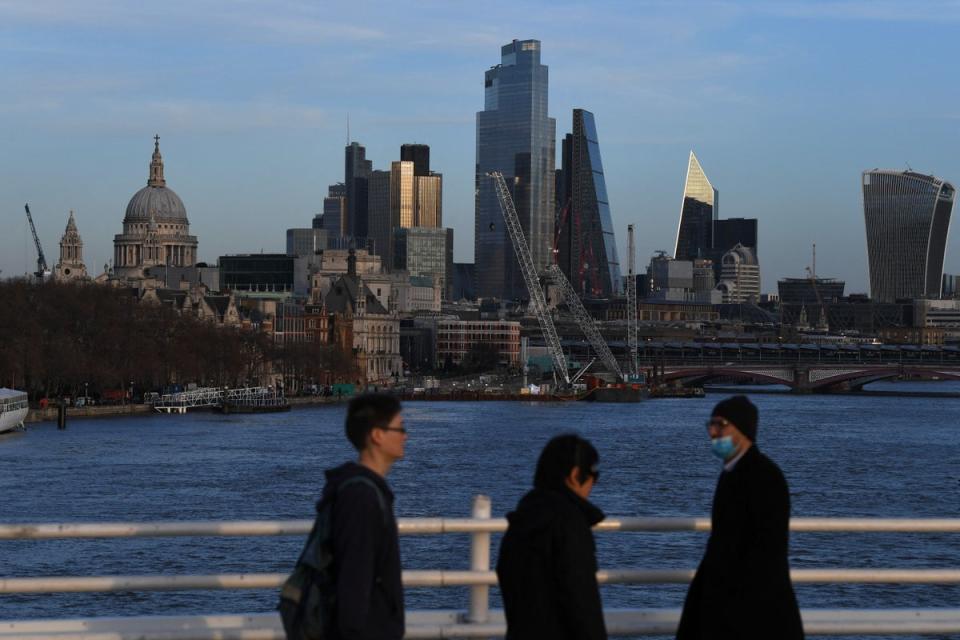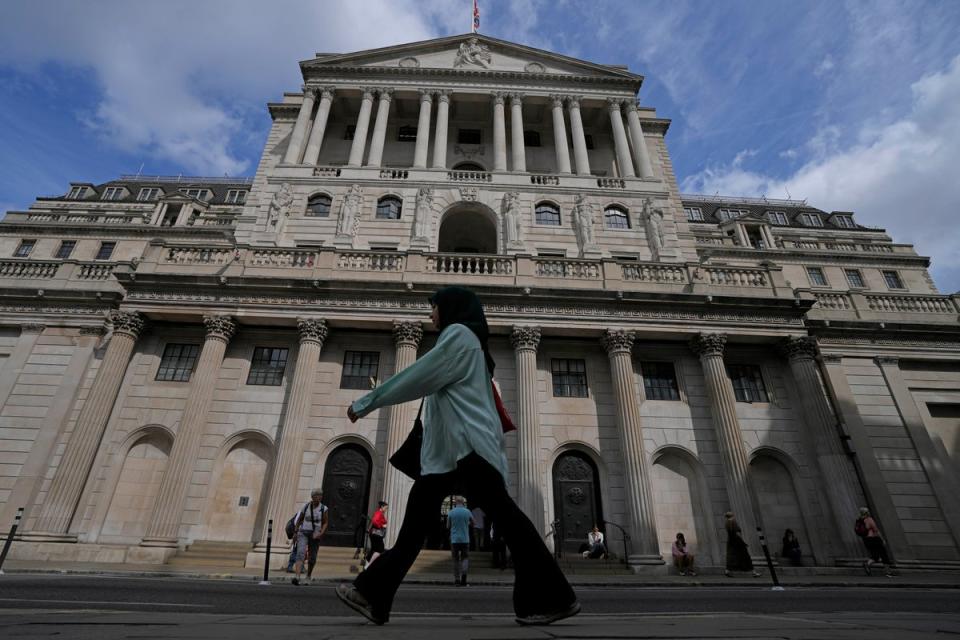Pound sinks to new 37-year low as inflation soars

The pound has hit a new 37-year low against the dollar as new official retail figures painted a bleak picture of the UK's economy.
Sterling dropped below $1.14 for a couple of hours on Wednesday morning, pushing it below recent lows and taking it to its worst point since 1985.
The drop came after newly released retail figures showed a drop of 1.6 per cent in August, compared to the 0.5 per cent fall economists predicted.
“This morning's retail sales in the UK continued to show a deteriorating consumption picture in the UK, which emerged more from the continuation of a steady downtrend from last summer rather than the single grim data point in a rather volatile series,” said Francesco Pesole, a currency expert at ING.

“This has been the last important piece of data before the Bank of England meeting on Thursday and has hit the pound this morning.”
The pound regained some ground in the early afternoon but was still trading down around 0.5 per cent against the dollar, buying a little over $1.14. It lost 0.3 per cent against the euro, also trading at a little over €1.14.
Olivia Cross, economist at Capital Economics, said the figures suggested “that the downward momentum is gathering speed”, supporting the view that “the economy is already in recession”.
The drop came on the 30th anniversary of Black Wednesday, when the UK had to withdraw from the European Exchange Rate Mechanism (ERM). The ERM was designed to ensure that the exchange rates between European currencies remained stable.
Governments and central banks had to ensure that their currency did not fluctuate by more than 6 per cent from their European neighbours - a mark the UK missed on Black Wednesday in September 1992.
The value of the pound was dropping quickly and the John Major government spent billions trying to prop it up but it could not keep up with currency traders desperate to sell pounds.
Eventually, the government had to pull out of the ERM, something which damaged the Conservative Party's reputation on handling the economy for years.

Sterling has been weak against the dollar for months, largely because of the strength of the US currency. The euro has also been at multi-decade lows against the dollar.
The drop as UK inflation fell slightly to 9.9 per cent this week. In July, CPI inflation hit its highest level since 1982, according to the ONS.
Although experts predicted that the figure would remain unchanged in August, downward pressure was put on the inflation rate by the falling price of fuel.
“The easing in the annual inflation rate in August 2022 reflected principally a fall in the price of motor fuels in the transport part of the index,” the ONS said.
“Smaller, partially offsetting, upward effects came from price rises for food and non-alcoholic beverages, miscellaneous goods and services, and clothing and footwear,” it added.
Despite falling back below 10 per cent, George Lagarias, chief economist at accountancy Mazars, said inflation would not drop off significantly for some time.
“Higher energy prices for all the previous months have fully fed into most supply chains and it will take months of lower oil for end-consumer prices to meaningfully come down again. Inflation may well remain a central theme until at least the end of the year,” he said.
“However, input costs have begun to drop and we should see this feeding into general prices eventually.”

 Yahoo Finance
Yahoo Finance 